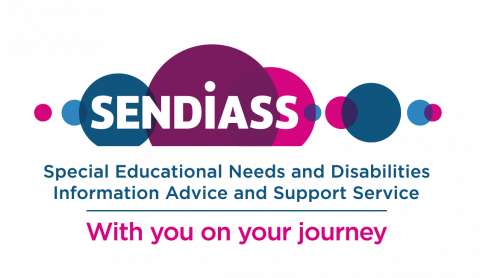Annual review of EHC plan
Skip to:
About annual review
Anyone with an Education, Health and Care (EHC) plan should have it reviewed every year. This is to make sure that it is current and relevant to their needs.
The purpose of an annual review
The purpose of the review is to make sure that everyone involved checks that the plan is still effective.
The annual review should focus on what the pupil has achieved, as well as any difficulties they have had.
It is a chance for everyone to say how they think the plan is working and whether it needs any changes.
The annual review should aim to:
- assess the progress towards meeting agreed objectives
- review the provision made to ensure it remains appropriate
- consider the continuing appropriateness of the plan
What happens at a review
The review will take place in the school and either the head teacher or SENCo should chair the meeting. The review should address the following points:
- the parents view of the past year’s progress and their aspirations for the future
- the pupil’s views of the past year’s progress and their aspiration for the future
- the school’s view of the pupil’s progress over the past year
- any changes in the pupil’s circumstances
- whether current provision is appropriate to the pupil’s needs
- what educational targets should be set for the coming year
- whether the pupil is included within the school community and if not, how this can happen
- if anyone needs to take any further actions
- whether the plan remains appropriate
- whether there are any amendments needed to the plan
- whether the Council should recommend ending the plan
Secondary Transfer annual review in year 5 or 6
The Year 5 review should include planning for transfer to a secondary school. The SENCO of the secondary school may attend the Year 5 or Year 6 reviews. The Council representative will usually attend the Year 5 review.
Transition to adulthood annual review in year 9
Recommendations and plans for your child’s move into adult life are made at a transition review. A representative from the Youth and Connexions Service should be at the review.
Who starts the annual review process
Before the start of each term, all head teachers get a list of pupils that need an annual review from the council.
The head teacher starts the review process by setting up a meeting and preparing a review report.
The meeting must include:
- the pupil’s parents or carers
- a relevant teacher
- a representative of the Council
- any person whom the Council considers appropriate
- any other person the head teacher considers appropriate
Pupils should attend all or part of the review, and contribute to written reports.
The head teacher must ask for written advice from parents, the Council, and teachers before the meeting.
Everyone invited must have copies of all reports for the meeting at least 2 weeks before the meeting.
If you are given more reports on arrival, request 15 minutes to read them before the meeting begins.
annual review timeline
Step 1 – within 2 weeks
Get advice and information about the pupil from all the relevant professionals, the parent and the pupil.
Step 2 – within 2 weeks
Send out the reports with the invitations to attend the annual review meeting.
Step 3 – within 2 weeks
The annual review meeting will consider:
- the pupil’s progress towards achieving the outcomes specified in their EHC plan
- whether the outcomes remain appropriate
- if their aspirations have changed
- review and set new short-term targets
- whether the provision needs any changes, including if the placement is still appropriate
Step 4 – within 2 weeks
Following the meeting the school makes a report recommending any changes to the plan. This gets sent to everyone invited to the meeting within 2 weeks including the council.
Step 5 – within 2 weeks
The council has 2 weeks (4 weeks from the date of the meeting) to decide what to do with the plan.
How to prepare for the review
Read all the reports. If you have not received them 2 weeks before the meeting, contact the school and ask them to send them.
You can take a supporter with you. This could be someone from Barnet SENDIASS or someone else of your choice. They can help you by reading documents in advance, or taking notes during the meeting.
Make sure that you know who everyone is at the meeting. Ask if you do not recognise anyone.
Take notes to remind yourself of issues you wish to raise during the meeting. You can then tick these off as you talk about them.
What happens after the review
After the meeting, the head teacher writes a report which notes the outcomes of the review. It also sets out educational targets for the year. This is sent to everyone who was invited to the review, including those who were unable to attend.
The council then reviews the report and makes their recommendations for the plan.
The possible outcomes of the review are that the council decides to:
- take no action
- amend the plan
- stop the plan
- change the name of the school

